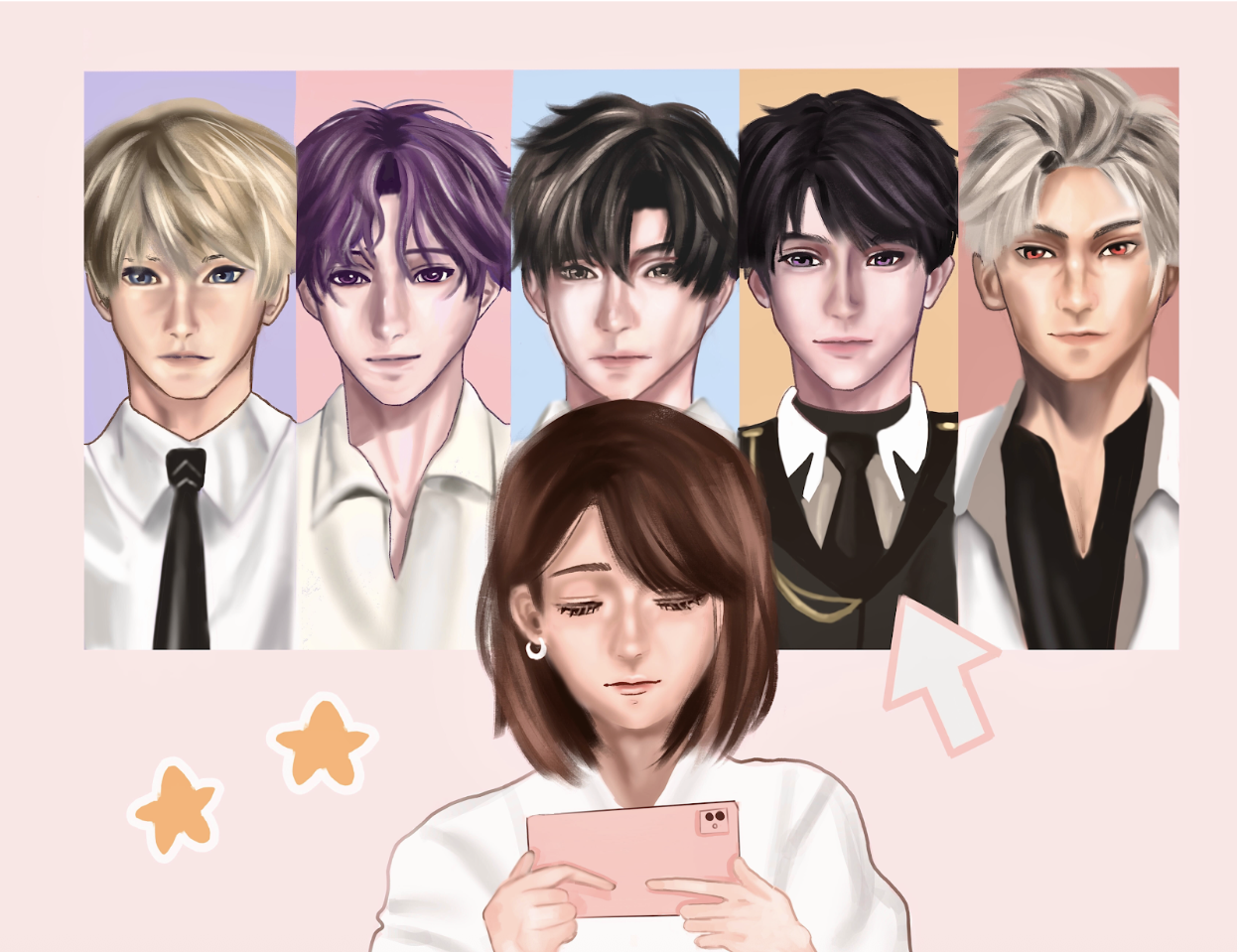In today’s world, where people can quickly connect with one another but often experience emotional exhaustion as a result, it is not surprising that more and more people are choosing to distance themselves from romantic relationships. At this point, virtual lovers seem to have become a substitute for real-life relationships. In the context of East Asian culture, virtual dating games serve as an antidote to the anxiety experienced in real-life relationships. In highly repressive growing environments, these games provide players with positive feedback, equality and encouragement for personal growth through consumption-based systems, thereby constructing an idealized form of love that is not constrained by reality. Otome games won’t really bother the player’s relationships in reality because they’re a new experience rather than an alternative.
Millions of women are spending money to purchase romantic experiences with virtual boyfriends as seen in otome games, a romance genre of video games with a strong narrative. These games are marketed towards women and feature female characters as protagonists. For example, Love and Deepspace, a Chinese 3D otome game published on Jan. 18, 2024, amassed 50 million players within a year. The majority of players are Chinese, with the game earning $202.83 million in the Chinese market. The following largest markets were the United States and Japan, with both earning around $30 million. Overall, the otome game market is more occupied by the Asia-Pacific region, mainly East Asia
A potential reason why otome games can be so popular among East Asians is that there is often a lack of emotional awareness in players’ families. Children are controlled by their parents, who demand uniformity and suppress emotional needs, while placing excessive emphasis on academic performance. In such an environment, children often lack self-confidence due to the absence of positive feedback from their parents, and they fear expressing their emotions because they are often misunderstood. Through repeated trials with their parents, children are frequently forced to confront significant instability, such as not knowing when their parents might suddenly become angry.
Virtual lovers in otome games serve as a form of parasocial interaction, playing a positive role. They unconditionally support the female protagonist, genuinely responding to all her needs — both emotional and material. It is precisely this unconditional support that allows players to feel stable, to believe they are worthy of love and gradually regain emotional agency, no longer placing their own feelings below those of others.
In Love and Deepspace, there’s a function in which the male characters will remember your period dates and make soothing gestures. The feature has allowed many players to realize that menstruation can be cared for, rather than being a source of shame as is often portrayed in Asian culture.
There is also the concept of equality in the game; male characters often show respect, support and tolerance toward the female protagonist. The game provides women with a virtual space where gender roles can be reversed. Female protagonists no longer passively accept male attention but actively choose their emotional paths and redefine their roles in love. This allows players to temporarily escape the gender pressures of reality and experience more idealized gender interactions since inequalities in reality persist.
Some people believe that otome games are a form of escapism. The first reason is that women are influenced by the overly idealized portrayal of love in the games, causing them to reject real-life intimate relationships. The second reason is that capital commodifies emotions, turning them into something that can be traded for money.
The commodification of emotions is closely linked to consumerism. In Maslow’s hierarchy of needs theory, physical and safety needs are at the bottom of the hierarchy, meaning that if we are able to meet our basic needs, we will inevitably seek higher-level needs — such as love and belonging. Purchasing is the most direct means to attaining higher-level needs.
For players, paying for emotional support offers a reliable and predictable form of emotional fulfillment, which is far more secure than the unpredictable nature of human emotions. Thus, the act of consumption becomes a tool through which players exercise their emotional rights.
The popularity of otome games reflects the transformation of emotions to a commodity in modern society. More and more players achieve their idealized vision of emotional autonomy and gender equality through virtual interactions.
Lynn Lin is an Opinion Intern for the summer 2025 quarter. She can be reached at baoyinl1@uci.edu.
Edited by Rebecca Do and Joshua Gonzales

